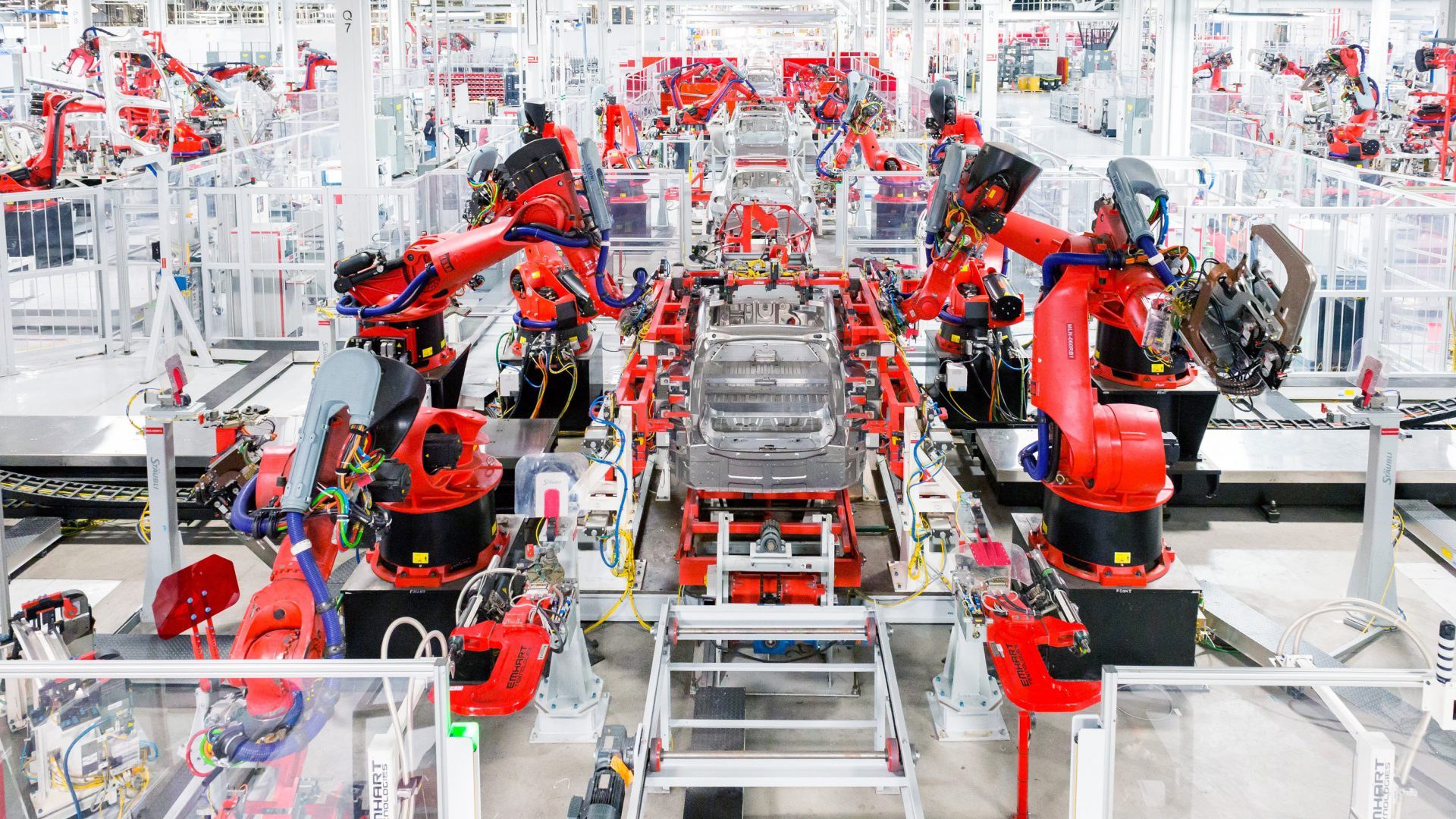

Tesla must defend itself in court over allegations that it knowingly permitted the abuse of foreign workers in accordance with federal labor laws, ruled a federal judge according to court documents filed on Monday.
The suit was brought against a slew of defendants, including Tesla, Mercedes-Benz, Deere & Company, Volkswagen Group, BMW, Eisenmann Corporation, and ISM Vuzem. Of the list of 36 defendants, charges were dismissed against the majority of the lot. However, Tesla and Eisenmann remain viable defendants according to the outcome of the hearing.
Judge Lucy Koh of California’s Northern District Court ruled that Tesla, Eisenmann, and Vuzem must stand against two of the seven claims brought against them, alleging that the companies violated California’s Trafficking Victims Protection Reauthorization Act (TVPRA) and Forced Labor Civil Codes. Five additional complaints, including charges under the False Claims Act (FCA) as well as the Racketeer Influenced and Corrupt Organizations Act (RICO), were found to be baseless and dropped.
Eisenmann Corporation, a company that manufactures automotive paint shop applications for Tesla, subcontracted some of its labor needs to install assembly line equipment with a company called ISM Vuzem. Gregor Lesnik, a Slovenian native, was hired by Vuzem to work on said project.
Lesnik is one of the plaintiffs in the complaint against Tesla and Eisenmann. In the suit, Lesnik alleges that he was paid far below minimum wage and was forced to work extreme hours. In a typical day, Lesnik says that he would work up to 12 hours, but never less than 10. He states that his average work week would be 80 hours (over 250 hours per month) for less than $950 in wages. He would only receive a single day off out of every 14 days that he worked, violating federal labor standards.
Furthermore, Vuzem is accused of threatening to withhold Lesnik’s pay and medical benefits if he reported a job-related injury. The case also alleges that the Vuzem threatened to withhold immigration benefits and visas, telling Lesnik that a hospitalization would “not go well for [him]”.
In addition to the civil complaints regarding federal labor standards and benefits, the suit states that the defendants falsified information on visa applications by stating that Lesnik and other employees had “specialized knowledge or a long history of installing Eisenmann equipment and process systems” so that laborers would qualify for a B-1 visa rather than the more appropriate, but costly, H1-B.
Tesla denies the allegations, stating that it “did everything correctly” in this circumstance. Historically, the automaker has been the target of worker’s rights complaints and CEO Elon Musk has publicly stated that he would investigate issues with factory working conditions in early 2017. Calls for labor unions have also been introduced by employees, though organizations like United Automobile Workers (UAW) have reportedly said that Tesla has threatened its employees over unionizing. Musk denied this claim also.
Judge Koh said that the decision to allow two of the lawsuit’s claims to be permitted was due to the fact that the allegations were “uncharacteristically specific” and rejected both Eisenmann and Tesla’s rebuttals that the liability lies with Vuzem alone because the abuses were committed by that company, stating that any party downstream which ultimately profits from the abuse bears some form of liability.
A Tesla spokesperson provided the following statement to The Drive:
“At Tesla, we operate on the principles of fairness, justice, and kindness. Whether people work for the company, one of our contractors or a subcontractor, we expect them to act ethically and follow these same principles. Gregor Lesnik was brought to the Tesla factory by a company called ISM Vuzem, a sub-contractor brought in by Eisenmann, the firm that we hired to construct our new paint shop. We contracted with Eisenmann not because we thought they were less expensive—they weren’t—but because they were regarded as one of the best, if not the best, in the world at building paint shops.”
“As far as the law goes, Tesla did everything correctly,” the statement continued. “We hired a contractor to do a turnkey project at our factory and, as we always do in these situations, contractually obligated them to comply with all laws in bringing in the resources they felt were needed to do the job. While we were not aware at the time, we’ve since learned that a subcontractor they used, ISM Vuzem, was not living up to our expectations.
“Had we known then that they were not doing the right thing, we would have removed them from our factory immediately. This subcontractor no longer works on Tesla projects. We’ve also further improved our supplier contracts and policies to better stop bad behavior. Contractors must, of course, follow the law, but that’s not enough. They must also act morally and do what’s right. Had there been something else we could have done differently or better in this situation, we would have done it,” Tesla concluded.